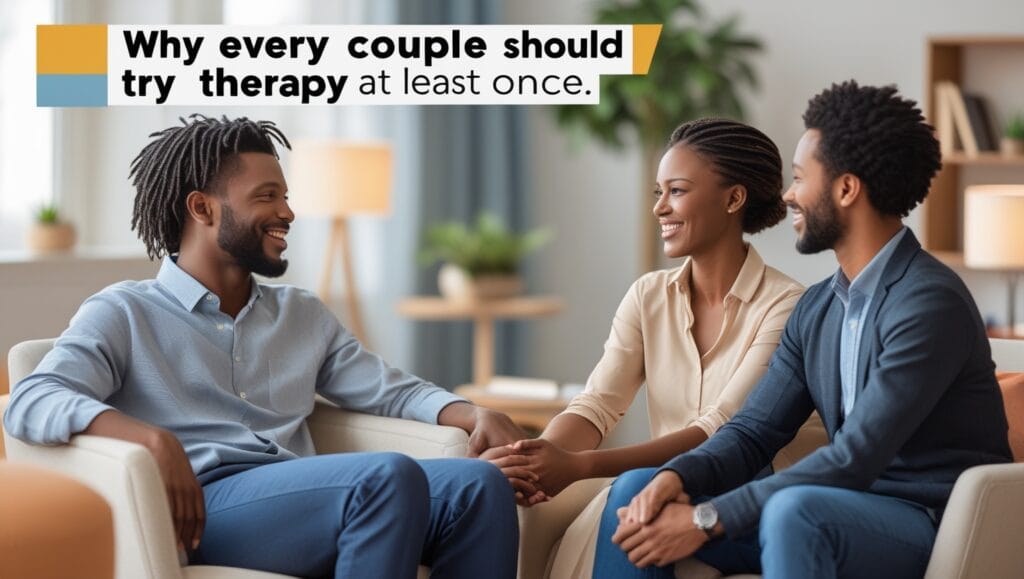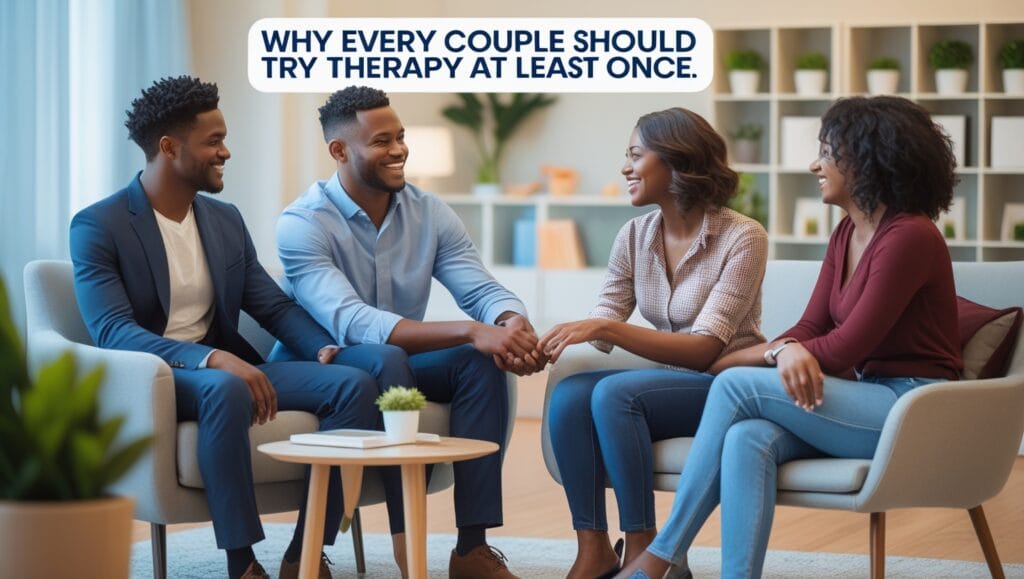Why Every Couple Should Try Therapy at Least Once
Relationships are complicated, no matter how solid your relationship is. Be it married for several years, dating for a couple of months, or starting anew, there are issues to be expected. Yet, one of the most influential tools lies vastly unused by couples: therapy.
There is this common misconception that therapy is for couples in crisis, but that couldn’t be further from the truth. Therapy offers a safe and structured environment to explore your connection, improve communication, and strengthen your relationship before problems arise-or even during the good times.
This blog will explain why couples therapy can be helpful for all relationships, including healthy ones, and answer frequently asked questions so that you can assess if it’s the right move for you.
Why Couples Therapy Isn’t Just for Troubled Relationships
Contrary to popular belief, couples therapy isn’t a last-resort solution for failing relationships but an opportunity to nurture your connection proactively, learn tools for better communication, and grow closer as partners.
Building Stronger Foundations
No great relationship occurs by accident, and building it takes effort to understand. Couples therapy helps partners build a stronger foundation by addressing the root of behavioral patterns, exploration of each other’s perspective, and fostering mutual respect.
For instance, many couples seek therapy not because they are constantly fighting, but because they feel disconnected from each other due to their different communication styles. A therapist can bridge this gap with personalized advice and actionable strategies.
Communicating Better
Communication is the foundation of any relationship. In times of heightened emotions, couples commonly revert to a cycle of miscommunication based on assumptions, such as that their partner “should already know what I mean.” Therapists provide a safe environment in which couples can safely practice active listening, honest expression, and comprehension of nonverbal interactions. They are trained to equip these tools, enabling couples to work through disagreements without resorting to an escalation of conflict. Strengthening Your Emotional Connection
Even in the happiest of relationships, life gets busy. Jobs, children, and daily responsibilities quickly take priority over your relationship, creating emotional distance. Therapy offers that opportunity for a couple to reconnect, review shared values and goals, and prioritize nurturing their connection with intention.
Research has shown time and again that couples who intentionally invest time in exploring and working on their emotional connection are more likely to report long-term relationship satisfaction.

Myths About Couples Therapy
Despite its benefits, myths about couples therapy often get in the way of people giving it a try. Here’s a closer look at some of the most common misconceptions.
“Therapy Means Our Relationship is Failing”
This is probably the most destructive myth about therapy. The truth? Getting therapy is a sign of commitment to your relationship, not failure. Recognizing areas for growth and working proactively to address them demonstrates a strong commitment to building a healthy, fulfilling partnership.
“The Therapist Will Take Sides”
A qualified therapist won’t play favorites or judge one partner more harshly than the other. Instead, their goal is to provide unbiased guidance while empowering both partners to share their experiences and perspectives constructively.
If you’re worried about bias, you should communicate your expectations to your therapist during the first session.
“Our Problems Aren’t Serious Enough for Therapy”
Many people believe that only couples in crisis need therapy, but any problem can be explored with a professional. Couples therapy can address everyday issues: improving time management, balancing family and professional life, or how to support each other’s goals. It is much easier to iron out small conflicts during therapy before they become major and more difficult to handle.
How to Know When Therapy Is Right for You
Wondering if couples therapy is right for you? Here are some situations in which it may be particularly helpful.
- Before Major Life Changes
Do you finally plan on moving in, getting engaged, or having kids? Now is a great time when therapy can help the partners discuss expectations, set boundaries, and get ready for these transitions.

- If Arguments Are Getting Frequent
Frequent fights don’t have to be the death knell of your relationship. However, unresolved fights will breed resentment over time. Couples therapy teaches you how to handle disagreements respectfully and constructively. 3. When You Feel Disconnected If one or both partners feel disconnected emotionally or “stuck,” therapy can help uncover what’s wrong and foster deeper understanding. 4. To Strengthen an Already Happy Relationship
Nothing “needs to be wrong” for therapy to help! Many couples use therapy to maintain a strong connection, explore personal growth, and ensure they’re aligned on future goals.
What to Expect During Your First Therapy Session
Feeling nervous about your first session? That’s completely normal. Here’s what typically happens during an initial meeting with a therapist.
1.Getting Know to You
First, your therapist will take some time to understand your relationship-how you met, what your strengths are, and the challenges you’re navigating together.
- Setting Goals
From here, your therapist will ask what you hope to achieve from therapy. Are you trying to develop better communication skills? Work out conflicts better? Understanding your goals helps the therapist tailor sessions to your needs.
- Safe Space Dialogue for Open
Therapy is your time to share your feelings without judgment. Many couples describe it as a relief to finally hear each other’s perspectives in a supportive, unbiased setting.
- Follow-Up Plans
At the end of the session, the therapist may provide tasks or exercises to work on before your next appointment (e.g., journaling emotions or creating shared goals).
Choosing the Right Therapist for Your Relationship
It is crucial to find the right therapist who will lead to a successful experience. Seek out professionals who:
- Specialize in relationships or couples therapy.
- Employ evidence-based methods, such as Emotionally Focused Therapy or the Gottman Method.
- Ensure both partners are being heard and understood.
Do not be afraid to set up initial consultations with a number of therapists before choosing the one that feels like the right fit for your relationship.
First Step Toward a Healthier Relationship
Visualize working on your relationship to where you feel actually heard, respected, and connected-therapy can make this dream a reality. Whether it be an issue-ridden or not-so-against-the-rope partnership, couples’ therapy ensures insight and tools to grow together as partners.
If you are ready to explore your options but don’t know where to begin, it would be wise to reach out to trusted platforms such as Regain or Psychology Today to inquire about a professional who has experience in relationship counseling. The first step taken may bring you closer than ever before.

